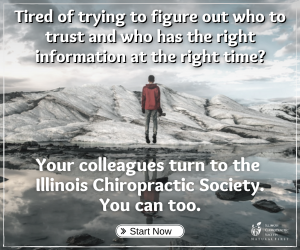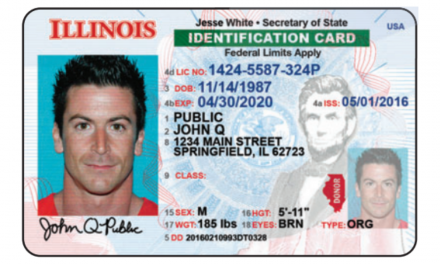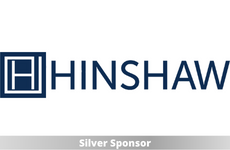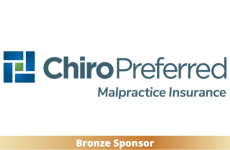
Illinois Legislature Wraps Up Spring Session
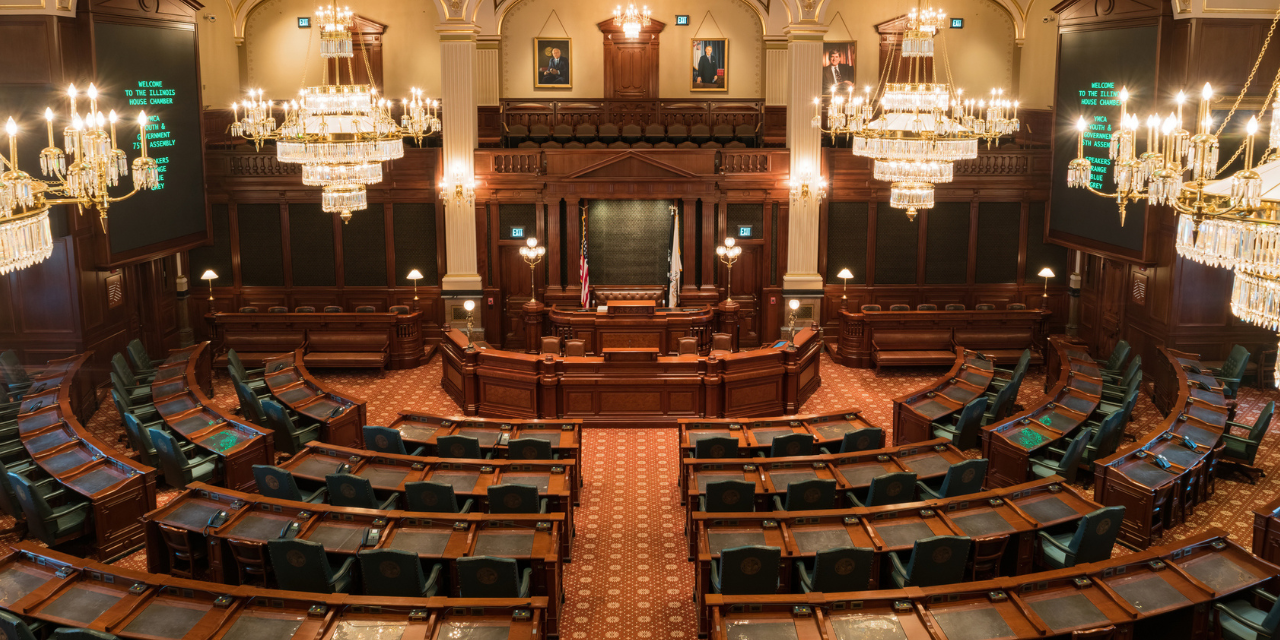
The Illinois General Assembly completed its work for the 2025 spring legislative session in the early hours of Sunday, June 1. The targeted adjournment deadline was May 31, so lawmakers only went a couple of hours over that mark. The state’s Fiscal Year 2026 budget was approved before midnight on the 31st; after midnight the budget bills would have required a three-fifths majority vote instead of a simple majority.
Though there was a flurry of amendments filed to bills in the waning days of session, the ICS found no provisions that would have had a direct impact on the chiropractic profession. There were several bills, however, that passed earlier of which chiropractic physicians should be aware.
Bills of Interest That Were Approved
These bills will now be sent to the Governor for his consideration:
Medical Licensure
HB 1270 (Hauter, R-Morton) removes the fee under certain conditions for a physician licensed under the Illinois Medical Practice Act to apply for a volunteer license. The ICS supported the bill and participated with the Illinois Department of Financial and Professional Regulation (IDFPR) and other stakeholders in the clarifying amendments.
HB 3850 (Huynh, D-Chicago), under the Civil Administrative Code for IDFPR, provides that simulation training by an approved sponsor shall be acceptable for the purpose of earning continuing education credit. Simulation-based medical education is generally defined as any educational activity that utilizes simulation aids (i.e., mannequins, virtual reality, augmented reality) to replicate clinical scenarios.
Insurance
HB 1697 (Manley, D-Romeoville) makes several changes regarding prescription drug costs and regulation for pharmacy benefit managers.
HB 3019 (LaPointe, D-Chicago) requires health insurance issuers to report to the Illinois Department of Insurance information on medical loss ratios and premium rebates.
HB 3796 (Huynh, D-Chicago) amends the Network Adequacy and Transparency Act regarding continuity of care for beneficiaries. It provides that a network plan shall permit the beneficiary to continue an ongoing course of treatment with that provider during a transitional period for 90 days from the date of the notice to the beneficiary of the provider’s disaffiliation from the network plan if the beneficiary has a confirmed appointment.
HB 3800 (Morgan, D-Highwood) is an initiative of the Illinois Department of Insurance that makes clean-up changes to the insurance act. One provision regarding the 12-month limitation for insurance recoupments allows the insurer and the health care professional to agree to a different time limit for the recoupment or offset to be withheld from future payments, so long as the insurer made the initial request within 12 months. The bill also makes changes in the network adequacy provisions regarding an insurance issuer’s failure to update a network plan’s directory. It requires that the issuer submit a revised version of the portions of the network adequacy filing affected and attach versions with the changes indicated for each document that was revised from the previous version of the filing. The ICS was vigilant in analyzing amendments to this bill to ensure that there would be no adverse provisions regarding medical billing by chiropractic physicians.
Medical Practice
SB 291 (Morrison, D-Deerfield) creates the One Health Framework Task Force for the purpose of developing a strategic plan to promote interdisciplinary communication and collaboration among physicians, veterinarians, and other scientific professionals. The ICS was involved in discussions with the sponsor and other stakeholders as the bill progressed.
SB 1238 (Villa, D-West Chicago) authorizes the Department of Public Health to develop and publish on its website an educational pamphlet regarding the use of nonopioid alternatives for the treatment of chronic pain, including nonpharmacological therapies. The ICS supported the bill and worked with the sponsor to provide assistance in its passage.
Small Business
SB 1441 (Peters, D-Chicago) makes changes to the Illinois Secure Choice Savings Program. It specifies the timeline for employers to enroll employees into the program by stating that employers must enroll employees who have been employed for at least 120 days. It also clarifies that the programs must be Individual Retirement Accounts (IRA) and must be portable for employees. The ICS worked with organizations representing small businesses to make certain that the provisions would not be overly burdensome for small employers.
HB 1616 (Hoffman, D-Belleville) makes changes to the Employment Blood and Organ Donation Leave Act. It makes part-time employees eligible for the program and states that, for part-time employees, the employer shall calculate the daily average pay the part-time employee received during his or her previous two months of employment. This act only applies to employers with 51 or more employees.
SB 212 (Fine, D-Glenview) make changes to the Nursing Mothers in the Workplace Act. It states that an employer must compensate the employee during the break-time at the employee’s regular rate of compensation and shall not require the employee to use paid leave during the break-time or reduce the employee’s compensation during this time. This act only applies to employers with more than five employees.
State Budget
HB 1075 (Gabel, D-Evanston) contains the provisions of the Budget Implementation Act that facilitates the enactment of the appropriations bill.
HB 2755 (Tarver, D-Chicago) contains provisions for revenue enhancements for the budget. It includes: a tax amnesty program from October 1, 2025, through November 15, 2025, estimated to bring in $195 million; delayment of the final payment from sales tax on motor fuel to Road Fund estimated to add $171 million; establishing a sports wagering tax estimated to collect $36 million; removing the hotel exemption for short-term rental hosting platforms thus taxing these establishments (i.e. Air BnB) to capture $15 million; and increasing the tax on nicotine products (including e-cigarettes).
HB 3374 (Rita, D-Blue Island) contains the provisions of the Bond Authorization Act to implement funding sources for various projects contained in the budget.
SB 2510 (Sims, D-Chicago) appropriates the funds for the Fiscal Year 2025 State budget.
Bills That Did Not Receive Approval Before Adjournment
There were a number of pieces of legislation in which the ICS was involved that did not pass before legislators left the Capitol for the summer. Several bills addressed waiving license fees under the Medical Practice Act for various reasons or specific regions. The ICS supported these initiatives but, unfortunately, none of these bills advanced.
The ICS initiated a bill to prohibit a group health plan or health insurer from discriminating with respect to participation or coverage against any health care provider who is acting within the scope of that provider’s license or certification. The bill was stalled in the House Insurance Committee. The ICS also supported a bill to authorize a chiropractic physician to perform student athlete health examinations and to participate in concussion oversight teams, and a bill that would allow a public body that is a licensing board authorized by IDFPR (including the Illinois State Medical Board) to conduct a public meeting through an interactive video or telephone system without any members being present at any physical meeting location. Again, these bills were not approved.
The ICS opposed legislation that contained provisions that would have adversely affected chiropractic practices. IDFPR initiated legislation that would have made comprehensive changes to the provisions regarding misconduct of health care providers. Though the ICS had no problems with the concept of the bill, certain provisions were troublesome regarding new reporting requirements and the definitions designating what would have been “reportable misconduct” by other health care providers. When no agreement could be reached among the IDFPR and stakeholders (including ICS and ISMS) on clarifying language, the bill did not advance.
The ICS opposed a bill that would have prohibited insured patients from making up-front payments to healthcare providers . Though it did not seem intended to cover non-covered services, it did not affirmatively state that the provider could require full payment up front for non-covered services. The bill is still pending in a House Insurance Committee subcommittee.





